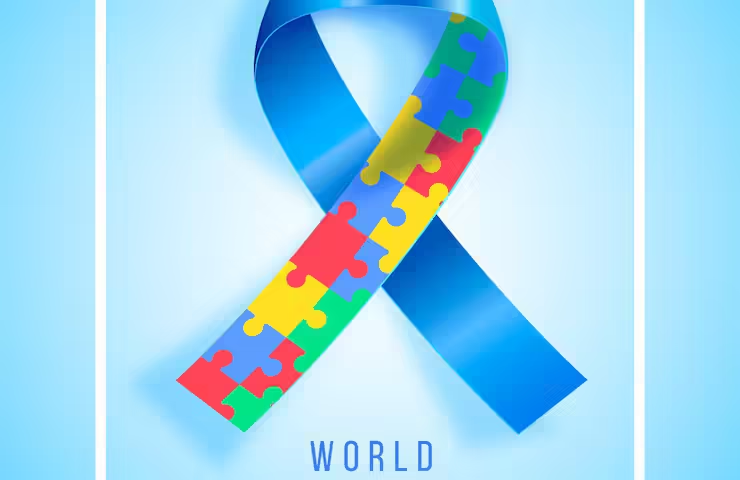
Why You Need a 360 Performance Management System

How To Be a Great HR Leader
The International Day of Autism Awareness, recognized globally on April 2nd, is part of Autism Awareness Month; a time dedicated to increasing understanding, acceptance, and support for individuals on the autism spectrum. It is also a time to honor the unique perspectives and contributions people with autism make across communities and workplaces.
In 2025, this global movement continues under the theme “Advancing Neurodiversity and the UN Sustainable Development Goals (SDGs)”, a powerful call to action for inclusion, accessibility, and respect across all areas of life, especially within the workplace.
What is Neurodiversity?
Neurodiversity refers to the natural variation in how human brains function and process information. It challenges the idea that there is only one “normal” or “correct” way of thinking, learning, or behaving. Instead, it promotes the idea that neurological differences are simply part of human diversity and that individuals with neurological differences should be accepted and supported for their unique strengths and perspectives.
Individuals whose neurological functioning differs from the societal norm are referred to as neurodivergent. In contrast, neurotypical individuals have brain development, behavior, and cognitive functioning that align with socially expected patterns particularly in communication, learning, and social interaction.
Examples of neurodivergent conditions include:
- Autism Spectrum Disorder (ASD)
- Attention-Deficit/Hyperactivity Disorder (ADHD)
- Dyslexia
- Dyscalculia
What is Autism Spectrum Disorder?
Autism Spectrum Disorder (ASD) is a developmental condition that affects how individuals communicate, interact, learn, and behave. It is referred to as a “spectrum” because no two individuals with autism experience it the same way.
Autism affects millions of people worldwide. According to the National Institute of Mental Health (NIMH), autism can be diagnosed at any age, though symptoms usually appear in the first two years of life.
People with autism may experience a wide range of characteristics, including:
Social and Communication Differences:
- Avoids or does not maintain eye contact
- Repeats words or phrases
- Delayed language skills
- Limited use of facial expressions or gestures.
Behavioral Patterns:
- Lines up toys or objects and becomes distressed if the order is changed
- Repetitive movements like flapping, rocking, or finger flicking
- Plays with toys in the same way repeatedly
- Has obsessive interests
Sensory Sensitivities:
- Unusual reactions to sounds, textures, smells, or lights
- Discomfort with physical sensations like clothing tags or loud environments
Developmental and Health-Related Issues:
- Delayed movement or learning skills
- Hyperactivity or inattentiveness
- Gastrointestinal issues (e.g., constipation)
- Unusual sleep patterns
- Epilepsy or seizure disorders
- Anxiety or emotional regulation challenges.
Neurodiversity: A Workplace Strength
For far too long, hiring practices and workplace standards have been measured by narrow definitions of communication, collaboration, and professionalism. These outdated standards often exclude neurodivergent individuals, especially those on the autism spectrum.
Yet research shows that up to 85% of autistic adults are either unemployed or underemployed, not due to lack of skill, but due to systems that are not designed with neurodiversity in mind.
While individuals with autism may face certain challenges, they often bring exceptional strengths, including:
- Extraordinary attention to detail
- Deep focus and persistence
- Creative problem-solving
- Strong integrity and honesty
2025 Theme: Advancing Neurodiversity and the UN Sustainable Development Goals (SDGs)
This year’s global theme highlights the link between neurodiversity and sustainable development, urging businesses, communities, and institutions to move from awareness to action by:
- Listening actively to the lived experiences of autistic individuals
- Providing platforms for self-advocacy and meaningful participation
- Removing structural barriers to full inclusion in the workforce and society
- Redesigning workspaces and communication systems to accommodate diverse needs
- Reframing success metrics beyond rigid communication styles or social norms.
The workplace is one of the most powerful platforms for inclusion, and it’s time to break the barriers that autistic individuals often face. By creating adaptable environments and fostering inclusive leadership, companies support autistic employees and advance the UN sustainable development goals.
Empowerment begins with changing hiring policies, creating mentorship opportunities, offering neurodiversity training, and promoting workplace cultures rooted in empathy and understanding.
Companies that rethink traditional norms by adopting flexible communication styles, revamping interview formats, and designing sensory-friendly workspaces do not only meet ethical expectations. They tap into a skilled, underutilized talent pool that brings unique perspectives and innovation
What BizEdge Does
At BizEdge, we believe that diverse teams build better businesses and that includes neurodiverse talent.
We’re committed to:
- Creating inclusive HR tools that help businesses recruit, onboard, and manage talent in ways that respect each person’s unique strengths
- Promoting fair hiring practices through our applicant tracking system to help reduce bias and open doors to broader talent pools
- Equipping HR teams with the tools they need to support every employee ; neurotypical or neurodivergent through inclusive workflows and adaptable platforms
Our mission has always been to make people operations better. That means recognizing the diverse ways people think, work and succeed.
We are proud to support this year’s theme and encourage every organization to take steps whether big or small to support autistic voices and build truly inclusive workplaces.
N.B: Everyone deserves to be seen, heard, and supported regardless of how their brain works. And if the tables were turned, no one would want to be the one left out.
Let’s continue building spaces at work, in schools, in communities where everyone belongs because inclusion is not a favor but a right.
